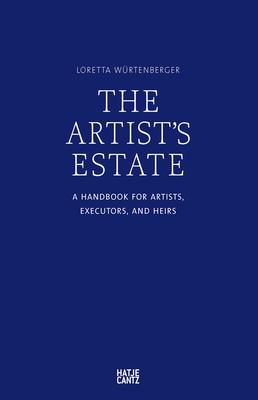How to manage an artist's estate in the 21st century, with case studies from the estates of de Kooning, Judd, Mapplethorpe and more
Andy Warhol memorably said that "death can really make you look like a star," but death in itself is not a guarantee of the relevance of an artist. What is of crucial importance is the proper management structure for the posthumous preservation and development of an artist's estate. The Artist Estate, a handbook written by Loretta Wrtenberger, presents the possible legal frameworks and appropriate financing models available in this situation, as well as the proper handling of interest from the market, museums and academia. Wrtenberger's business, Fine Art Partners, has advised artists and artists' estates for many years. Based on numerous international examples, the author explains the different alternatives for maintaining an artist's estate and makes recommendations on how best to handle work, archives and ephemera following the death of an artist. Estates discussed here include Zentrum Paul Klee, Max Beckmann Estate, Henry Moore Foundation, Easton Foundation (Louise Bourgeois), Roy Lichtenstein and the Willem de Kooning Estate, Dedalus Foundation (Robert Motherwell), Robert Rauschenberg Foundation, Judd Foundation, Eva Hesse Estate, Robert Mapplethorpe Foundation, Martin Kippenberger Estate and Estate of Philippe Vandenberg.
